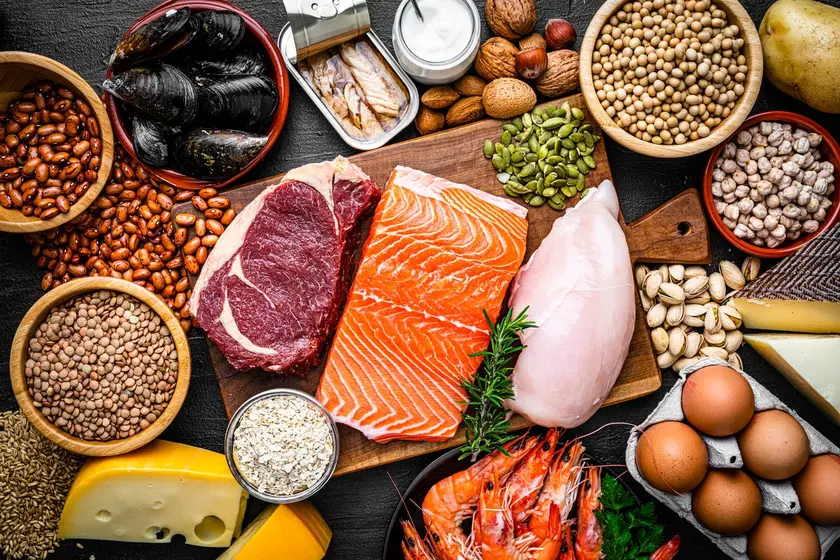T4K3.news
Understanding Optimal Protein Intake
Experts recommend balanced protein consumption to support overall health and fitness.

The quest for optimal protein intake raises essential questions.
Finding the Right Balance for Protein Consumption
In recent years, the obsession with protein has taken new heights. Many products, from energy bars to cereals, now boast added protein, accommodating a growing market focused on high-protein diets. Experts highlight the vital roles of protein in bodily functions such as muscle growth and digestion, noting that insufficient intake can lead to health concerns like muscle wasting and a weakened immune system. Recommendations suggest adults should aim for around 0.8 grams of protein per kilogram of body weight. For athletes, needs can rise to about 2 grams per kilogram, often leading to protein supplementation to meet these targets. However, there is a cautionary note: excessive protein consumption can stress the kidneys, cause dehydration, and even result in weight gain due to conversion into fat. Striking a balance is thus crucial for health while pursuing fitness goals.
Key Takeaways
"Protein is essential, but balance is key."
This highlights the need for moderation in protein consumption.
"Too much protein can place additional strain on renal function."
This draws attention to potential negative effects of excess protein.
"A balanced diet relies on all macronutrients, not just protein."
This emphasizes the importance of a varied diet for overall health.
"Insufficient protein intake can lead to severe health effects."
This underscores the risks associated with inadequate protein consumption.
This protein craze reflects broader trends in health and nutrition, where individuals often seek quick fixes for diet-related goals. The public's increasing interest in fitness and health is leading to a continuous re-evaluation of dietary needs. However, such trends can obscure the importance of a balanced diet. With many opting for high-protein products without considering overall dietary balance, there's a risk of overlooking essential nutrients from carbohydrates and fats. It is vital to remember that a sustainable approach to nutrition should prioritize whole foods and consider individual lifestyle needs rather than following fleeting fads.
Highlights
- Finding the balance in protein intake is key to health.
- More protein does not always mean better nutritional health.
- Excessive protein can lead to unexpected health issues.
- Whole foods shouldn't take a backseat to protein supplements.
Risks of Excessive Protein Intake
While protein is vital for health, consuming too much can stress kidneys and may lead to dehydration or weight gain. It's crucial to heed balanced dietary guidelines to avoid these risks.
As dietary trends evolve, the commitment to balanced nutrition remains essential.
Enjoyed this? Let your friends know!
Related News

14 plant-based foods boost muscle growth

Experts recommend dietary changes for midlife health

Experts Warn Against High Animal Protein Intake

Eating eggs weekly linked to lower Alzheimer’s risk

New studies link fibre to reduced cancer risks

Daily Fiber Helps Lower LDL Cholesterol

Moderation in fruit consumption aids blood sugar control

Coffee impacts nutrient absorption, experts warn
